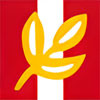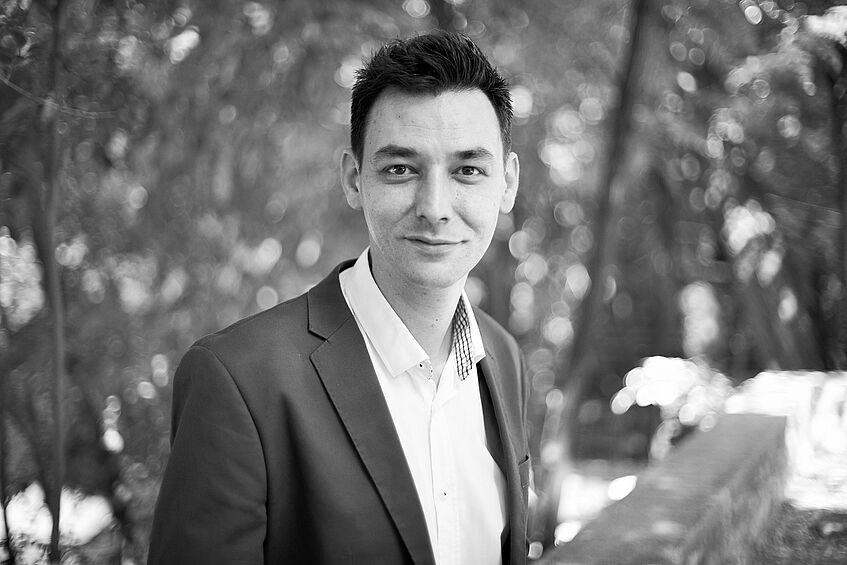Ethical risks and public anxieties regarding robots and AI
As robots and AI become increasingly integrated into our society, the excitement surrounding their potential is often overshadowed by anxieties about the negative impacts they may introduce into our lives. In response to these concerns, understanding the associated risks is crucial for both our present interactions with these technologies and the future ones.
This talk on „Ethics for AI and Robotics“ delves into the moral questions and risks stemming from emerging digital innovations, with a particular focus on large language models (LLMs). We will explore ethical concerns related to privacy, surveillance, trust, manipulation, and bias, drawing insights from literature in technology ethics and findings from recent studies in human-robot interaction.
Concrete applications of AI and LLMs, such as generative AI platforms like ChatGPT, will be discussed, especially regarding their influence on education and the arts. Critics argue that tools like ChatGPT have fundamentally changed educational practices, diminishing students‘ ability to write independently and think critically. How can we regulate these technologies to enhance education rather than hinder it?
The impact of AI on artistic creation also presents significant challenges. While AI software for art-making offers new possibilities, it alters our understanding of creativity and raises ethical concerns about authenticity, which is central to artistic expression. This transformation is often seen as risky, as it can turn artistic creation into a commodity heavily reliant on the economic interests of large software companies. Tools like Midjourney have faced criticism for training on established artists‘ ideas and expressions without their consent or compensation, leading to pressing authorship and copyright issues.
This talk aims to highlight current ethical risks and anticipate future ones, not merely to critique these technologies, but to explore how we can make them more socially and culturally safe, ultimately reshaping their development toward a “good life” with robotics and AI.
Boris Abramovic is a researcher dedicated to exploring the ethical and societal impacts of new and emerging technologies, particularly in robotics and artificial intelligence. He is affiliated with the Philosophy of Media and Technology research group at the Institute for Philosophy at the University of Vienna. As a doctoral candidate in the Department of Philosophy, he focuses on the intersection of technology ethics and art.
Monday 22nd September 2025 entry 18:00 pm
Start 18:30 pm
Hanuschgasse 3/4/1/1046, 2nd courtyard, 1010 Wien
We look forward to an engaging and thought-provoking evening with Boris Abramovic. Afterwards, there will be room for personal conversations over wine, water, and bread.

Boris Abramovic is a Praedoc Marie Skłodowska-Curie Fellow in the European Training Network on PErsonalized Robotics as SErvice Oriented applications PERSEO.
As a MSCA PhD Fellow he is working on a cross-disciplinary research project Social robots through the lens of artistic imaginary.
The themes of his research:
(1) The contribution of art to ethical reflections on social robots; (2) Social robot personalization – ethics and societal impacts (3) Robots and art – aesthetics, technologies of production, and reception; (4) Robotics in health and care – creative applications; (5) Robots in education with a focus on the concept of robot tutor and ethical implications;
Prior to joining the research group of the Chair Philosophy of Media and Technology at UNIVIE, he was a visiting researcher at RELATE – Research Laboratory for Art and Technology at Aalborg University in Denmark, and a member of Decolonizing the Machine research platform (2021).
He has a Master of Arts degree in Media Art Cultures from Aalborg University in Denmark, where he completed his master’s thesis on Non-Human Turn in Performance Art (2019).
Until 2018 he worked as an Advisor for visual arts in the Ministry of culture of Montenegro, and as a Head of the Anna Lindh Foundation for intercultural dialogue in Montenegro
We take photos, film and sound recordings at our events, and by attending the event you consent to their subsequent use.

